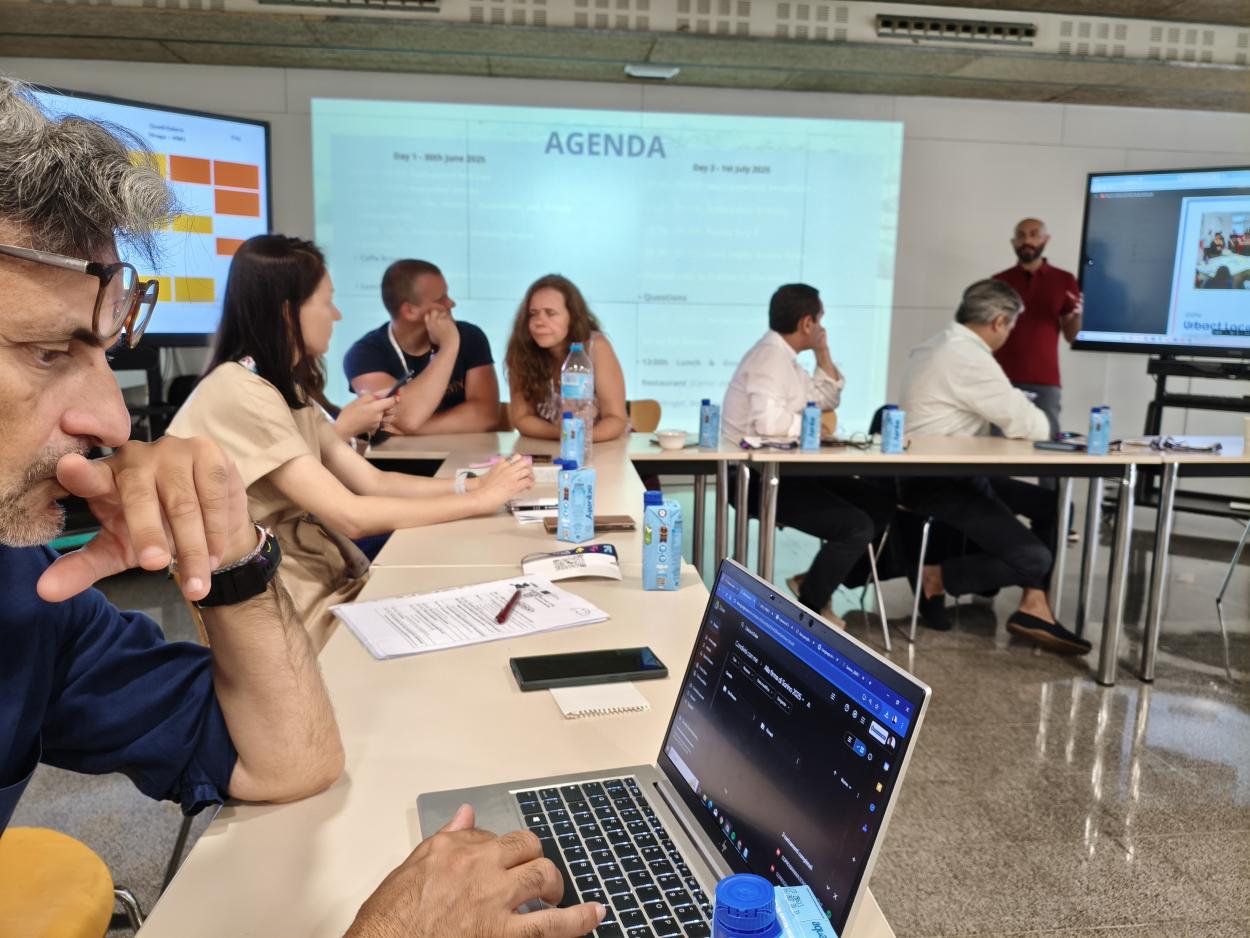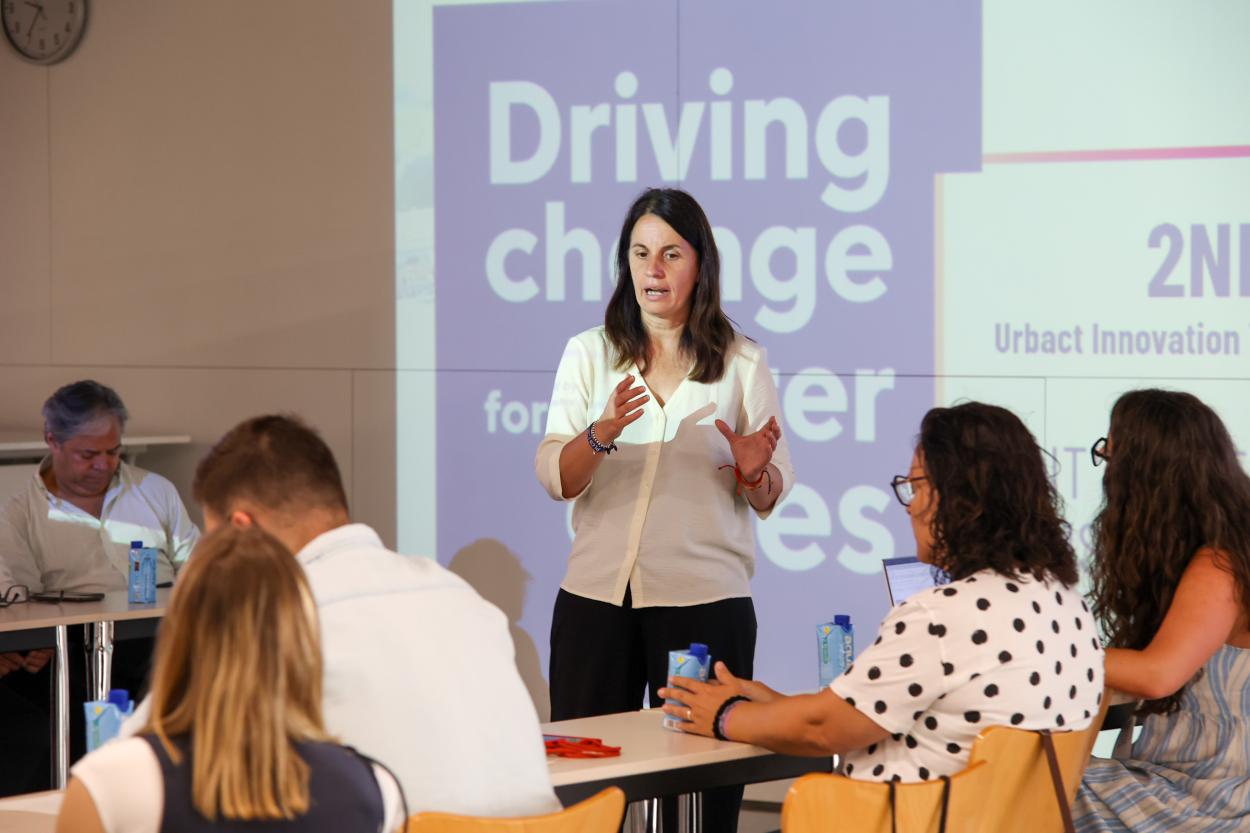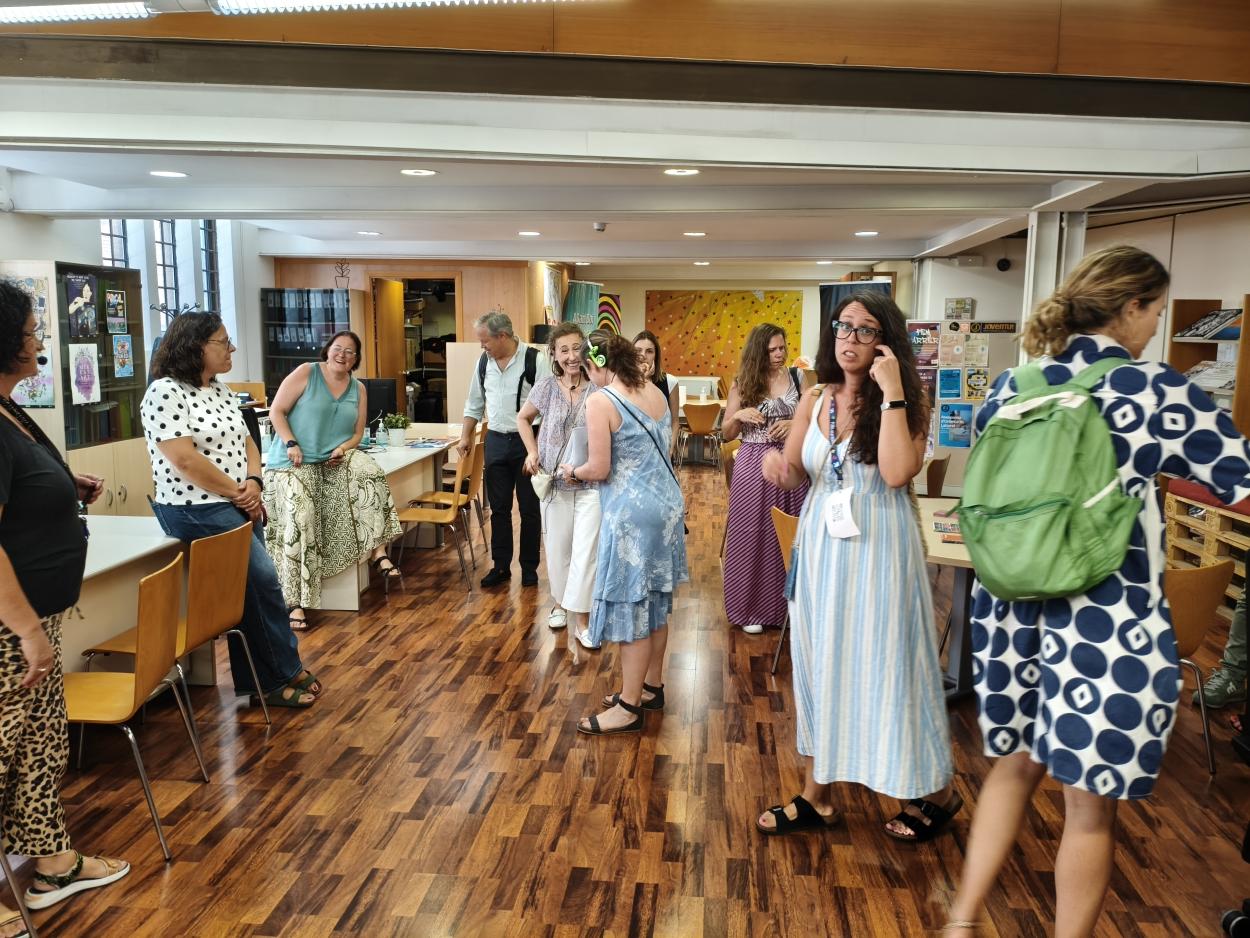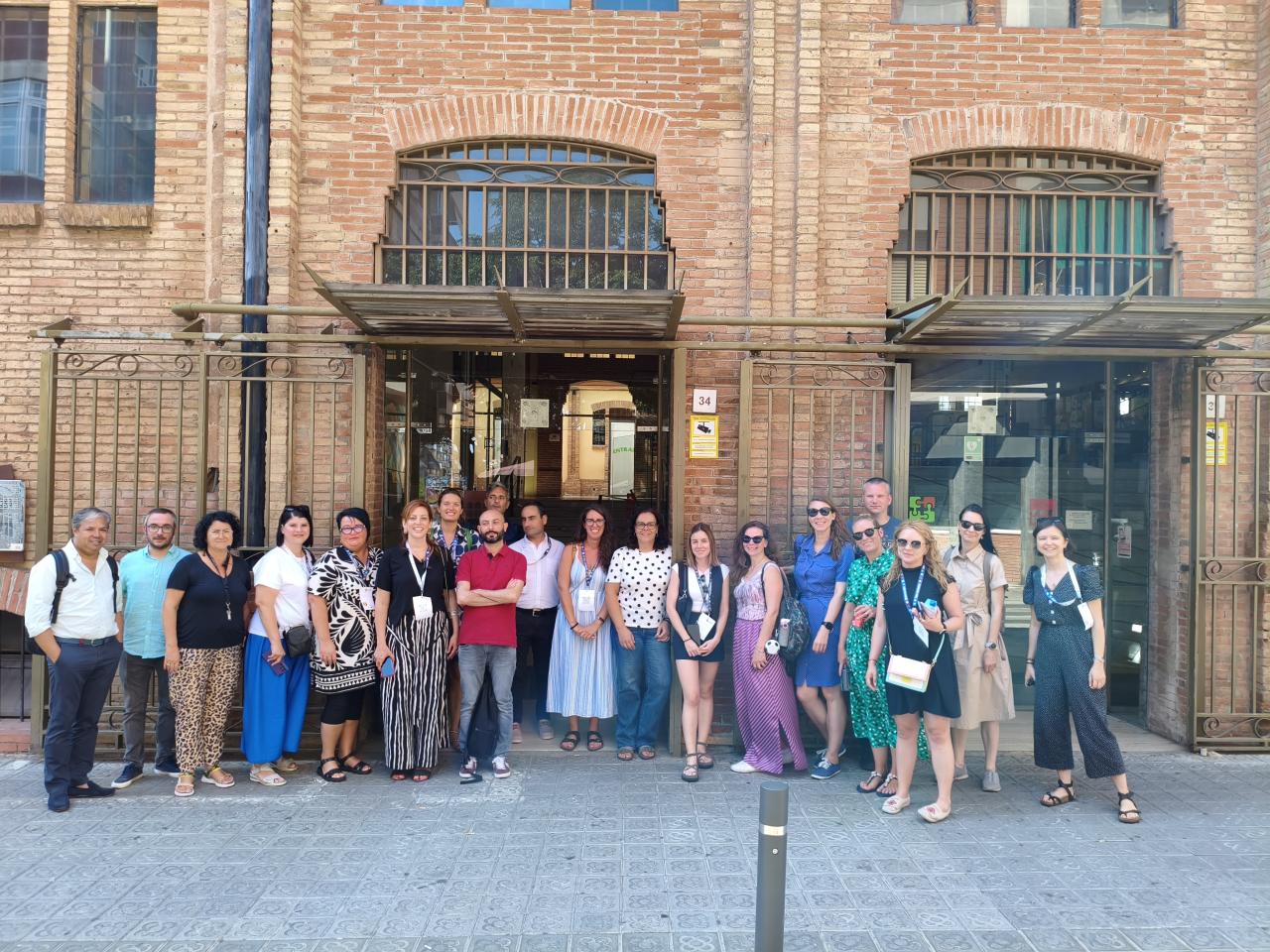Sant Boi provided an ideal setting for this first exchange. With a strong commitment to social innovation, community engagement, and youth-led public policy, the city showcased practical projects and governance strategies that could serve as inspiration for other urban contexts. This report summarizes the key content and reflections of the two-day event.

Day 1: Local Contexts, Governance and Youth Initiatives
The meeting opened with an institutional welcome highlighting Sant Boi’s commitment to building a cohesive and transformative city, particularly through youth engagement. Municipal representatives emphasized policies aimed at empowering adolescents, improving access to education and mental health services, and supporting alternative leisure projects. Innovation, citizen participation, and international cooperation were central themes.
City Strategy and Governance
Sant Boi positions itself as a city committed to health, sustainability, and social innovation. With 60% of its territory preserved in its natural state, it boasts one of the highest air quality levels in the Barcelona metropolitan area—an indicator of its strong environmental focus. This commitment is embedded in a comprehensive strategic planning framework, guided by a 2030 City Strategy with the efforts towards Sustainable Development Goals. Under this umbrella policy instrument, the Local Urban Agenda is the comprehensive, multi-level, and multi-actor city governance framework, implemented through the city’s 2023–2027 Mandate Plan.
At the heart of this vision is a participatory governance model based on the quadruple helix approach, which fosters collaboration between public institutions, businesses, academia, and civil society. A key example of this is “Decidim” a participatory digital platform designed to engage citizens directly in the development of public policies.
Together, these elements illustrate Sant Boi’s integrated approach to urban planning—one that not only promotes sustainability and wellbeing but also ensures that young people and community stakeholders are active contributors to the city’s future.
Transformative Projects for Community Wellbeing
A central presentation focused on Sant Boi’s Community and Wellbeing Project, which operates across six districts and addresses youth inclusion, violence prevention, and social cohesion. It aims to reduce conflict through cross-sector collaboration (health, education, police, housing, etc.) and builds governance through steering committees and local working groups.
Innovative actions include a pilot project in schools using music for social inclusion and a new role for police as educational figures to support and mentor youth. The project also pays attention to second-generation migrants and their identity-building processes.
This initiative reflects a comprehensive vision of wellbeing, tackling the root causes of insecurity and marginalization through preventive, inclusive, and youth-centred strategies.

Internal Workshop: Transferability and Local Practices
Cities shared their progress on the project starting from the transferability study. Each city illustrated early ULG activities to explore youth perceptions of safety.
After an initial introduction, the city partners shared their local challenges and successes.
Youth Policy and Local Services
The afternoon sessions explored Sant Boi’s local youth policy through the work of El Punt Youth Information Service and Can Massallera, a multi-purpose former textile factory turned into civic space. Here the Local Youth Plan (2022–2026) was presented as an action that focuses on four pillars: information, training, equal opportunities, and participation.
Notable programs of the Plan include, among others:
- FEM CARRER – street outreach and activities
- AFTER SUN BOI – youth-dedicated pool nights
- FESTA DELS 18 – birthday events for 18-year-olds
- SB JOVE Card – incentives for free youth activities
- El Punt Youth in Can Massallera also hosts vital services such as sexual health support, career guidance, mental health counselling, and dropout prevention for high school students.
Sant Boi provides a strong example of integrated youth services grounded in real needs, co-creation, and accessibility. Youth are not just beneficiaries, but agents in the policy ecosystem.

Case Study: CauSoundBoi Festival
CauSoundBoi is a youth-led music festival with grassroots origins in the local scout movement. It exemplifies learning-by-doing, with youth organizing all aspects of the event through self-management and volunteer work. Though popular, challenges remain around volunteer retention and balancing community concerns. CauSoundBoi embodies active citizenship and cultural identity, demonstrating how leisure can become a tool for education and community development when truly co-owned by young people.
Day 2: Civil Society and Alternative Nighttime Models
The second day began with a case study from Fundació Marianao, presenting the “Vente Pa’ka” project. Born in a working-class neighbourhood, this initiative began with youth reclaiming an abandoned building and transformed into a structured program of nighttime activities.
With over 70 different activities and 6 weekend cycles per year, it gathers 400–500 participants. Youth volunteers take the lead in planning and organizing, supported by diverse funding sources and public partnerships. Sports, cultural events, and inclusive programming ensure that all young people in the city can find a space of belonging.
Vente Pa’ka is a clear example of how trust and autonomy given to youth can unlock transformative results. It's not just an activity program but a platform for empowerment and self-realization.
What We Learned
Across cities, several common learnings emerged:
- Youth participation must be real, not symbolic: cities like Sant Boi and Turin are creating structural roles for youth in governance.
- Physical spaces (like Can Massallera or Cluj’s park) matter greatly for creating a sense of safety and community.
- Multi-sectoral collaboration is crucial: working across education, health, policing, and planning provides a holistic approach.
- Storytelling and visibility are powerful tools to shift narratives around neighbourhoods and safety.
- Volunteer burnout and sustaining engagement are universal challenges when working with youth.
- In-person engagement continues to be more effective than digital-only methods for building trust and gathering input.


